17 Facts About The Real "Maid:" Stephanie Land's Novel Is So Much More Than The Netflix Series
- Oops!Something went wrong.Please try again later.
Maid, the new Netflix original miniseries released this month, is on track to beat The Queen’s Gambit, with 67 million households tuned into the drama.

The gritty and intense series, starring Margaret Qualley, follows newly single mother Alex and her daughter, Maddie, as they recover from the trauma of abuse and neglect. Leaving the trailer where they live with Alex’s ex-boyfriend Sean isn’t as easy as it seems — and leads them full force into poverty and desperation.
Maid, the novel, is a harrowing account of domestic violence and abuse, but viewers should not forget what the narrative is mostly about: poverty and the severely broken United States’ welfare system.

In Stephanie Land’s book Maid: Hard Work, Low Pay, and a Mother's Will to Survive, which inspired the series, Land is focused on the struggle to persevere in a system built for failure. In 2021, we know all too well that our social safety nets are disappearing. But in 2008 (amid the Great Recession), most middle-class Americans were just waking up to this realization — including Land.
Here are some of the biggest differences between the Netflix series and the novel:
1.Alex came from a middle-class upbringing.

It feels almost implied throughout Netflix’s Maid that Alex had an unstable upbringing, but that couldn’t be farther from the truth. Her mother, though not exactly "Mother of the Year" material, was the first in their family to go to college and earn a master’s degree. While living in Alaska, they spent a lot of time “giving to families in need” as something to do during the holidays with their church.
As recalled in the book, “We were there to ‘witness’ and share the gospel with them. In exchange for their listening ears, we fed them apples and sandwiches. I’d say, ‘Jesus loves you’ though one man smiles at me and said, ‘He seems to love you a little more.’” Land was under the impression that she would always be safe; she never questioned it — until it was too late.
2.Stephanie Land’s story happens in the middle of the 2008 financial crisis.
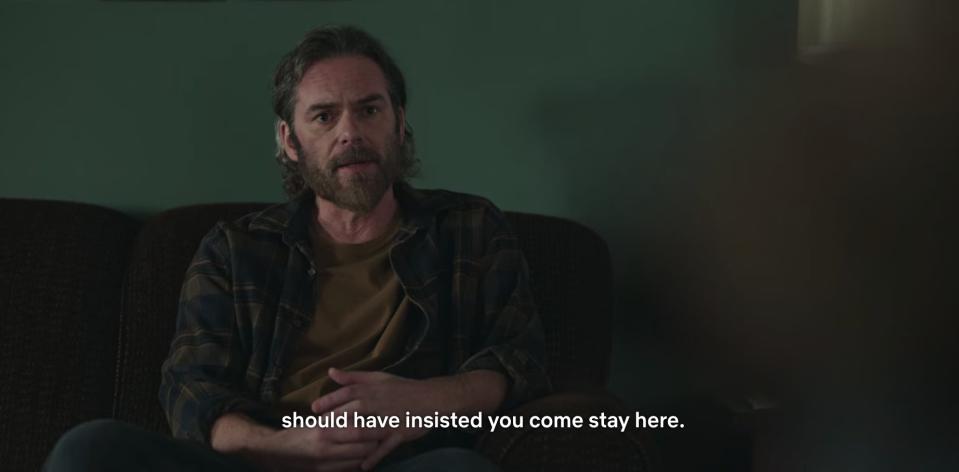
You’d never know it from the Netflix show, but the 2008 financial crisis is a major footnote in this specific narrative. In the series, Alex doesn’t want to accept help from her father because a) they are semi-estranged, and b) she eventually remembers that he abused her mother — but in reality, Land’s father was struggling himself after the housing crash and couldn’t afford to feed two more people.
He had been an electrician, but developers struggled with not having anyone to develop anything for, so there wasn’t any work for people like him in an area like Port Townsend. He and his wife couldn’t make ends meet in the economic collapse, leaving Land and her daughter without support.
3.There typically aren’t any magical, wealthy benefactors waiting to make your life easier.

This happens a lot in television, movies, and novels: Someone is struggling financially, and somehow, almost magically, a wealthy person swoops in and saves the day. This happens in the Netflix version more than once, between Alex’s relationship with Nate, her budding friendship with Regina, and the hot-shot family lawyer who takes on Alex pro-bono.
In the real story, none of this happens. Yes, Land was loaned a car by someone she had been on a date with, but not a place to live. Among all her clients, none of them became her friend as Regina does for Alex. Except for some extra cash here and there and some live lobsters, she doesn’t receive any other perks from serving the rich. Land didn’t even find out about getting a notice of relocation through a lawyer; she learned that through her advocate at Domestic Violence and Sexual Assault Services.
4.Abuse doesn’t always develop over long periods of time.
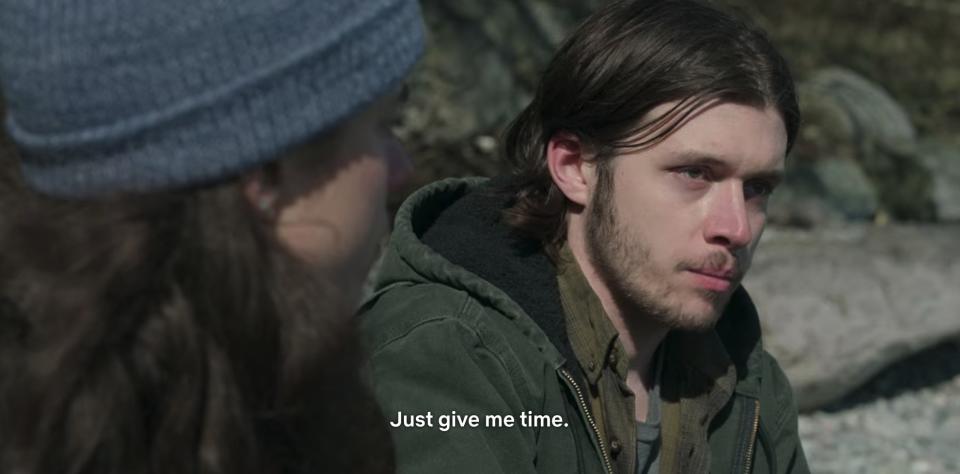
When reading Maid, it is safe to assume the character of Sean is based on Jamie, who is Land’s ex-boyfriend and father of her daughter. She and Jamie had only been together four months when Land had gotten pregnant, and upon finding out that an abortion was not on the table, the first signs of his rage and toxicity began to show. “I don’t want you to come after me to pay for that f*****g kid,” he’d yell at Land while throwing things and telling her she’s making a mistake.
Seven months after their daughter was born, she decided enough was enough. Patterns of abuse can form quickly, sometimes in a matter of weeks — but it seems like the series implies that Alex and Sean have been together for quite a while. Dream-like flashbacks of happier times with one another show Alex and Sean looking years younger, talking about dreams of college and traveling — whereas the reality was far from what most people would call a long-term relationship.
5.“Welfare is dead.”

Toward the end of Land’s book, she states, “Welfare is dead. There was no welfare, not in the sense they thought of it as. There was no way for me to walk into a government office and tell them I needed enough money to compensate for the meager wages I needed in order to pay for a home.” This is in response to the judgment she felt from people all around her while the economy was in collapse and millions of others were struggling through similar hardships. This is different than what we see with Alex in Maid, where welfare is depicted as part of going through the motions, not as something deeply broken that is affecting millions of people.
According to one study, caseloads across all safety net programs rose to over 300 million recipients throughout this period — however, Land and those like her were unfairly discriminated against in their daily lives, all the while still not getting enough assistance to live sufficiently. The series does not really touch on this systematic issue, but focuses more on Alex's individual struggle.
6.There is rampant class prejudice.
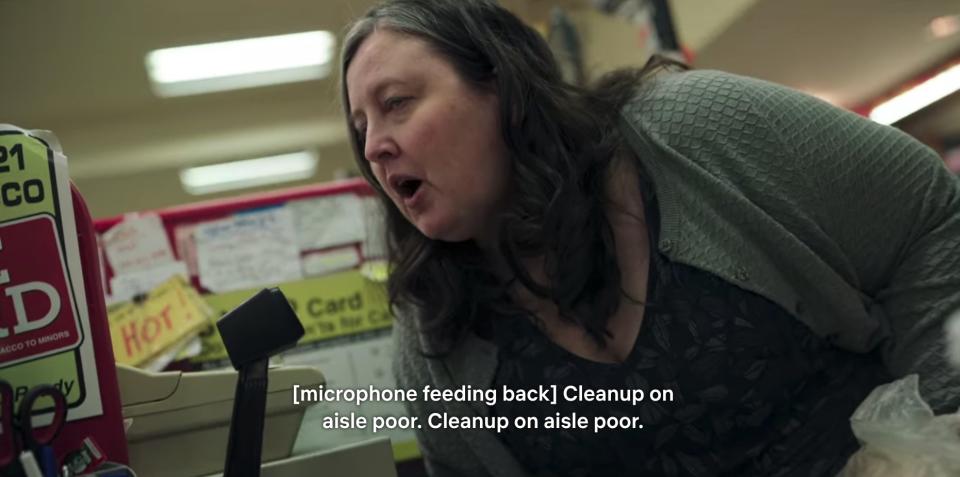
In Alex’s world, she isn’t harassed every time she uses her EBT card (electronic benefit transfer card for SNAP/food stamps) at the grocery store; she isn’t told, “you’re welcome” by her closest friends when she confides in them about government assistant programs. She isn’t anxious because she believes people are watching her every move, making sure she doesn’t do anything they don’t think a poor person should do. But in Land's real life, these were everyday occurrences.
In Land’s story, she becomes so embarrassed and full of shame that she stops using WIC altogether, even though she absolutely needs it. People’s prejudice against those who are low income makes their already difficult lives more difficult, which we do not really see in the Netflix drama.
7.The decline in the American middle class paved the way for open and extreme racism.
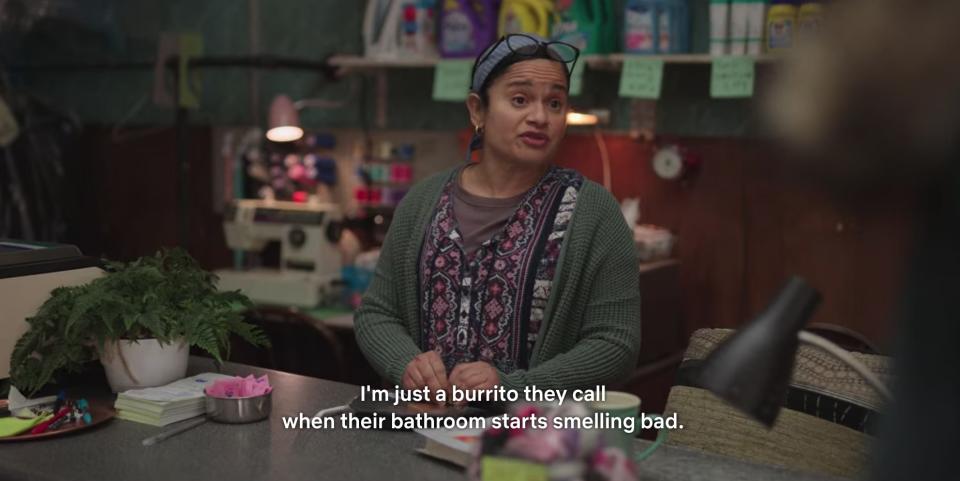
Even though hundreds of millions of Americans were struggling across all demographics, Land noticed that people began to see it as a “them” problem. Wealthy clients of hers would go on racist rants about “Mexican families” using food stamps and “being dressed to the nines,” while not realizing that the maid they were saying this to was also on government assistance.
Racism barely is addressed in Maid, but it was a common occurrence that many of Land's coworkers and peers would face. She noticed the attitude that “immigrants came here to steal our resources” was spreading, and people thought their taxes subsidized food for “lazy poor people.” Land acknowledges this with, “When people think of food stamps, they don’t envision someone like me: someone plain-faced and white. Someone like the girl they’d known in high school who’d been quiet but nice. Someone like a neighbor. Someone like them. Maybe that made them too nervous about their situation.”
8.Land was on SEVEN different government assistance programs.

Even though Alex states, "I am on seven different forms of government assistance" in the show, they never go into too much detail about these programs.
A Pell Grant, SNAP (Supplemental Nutrition Assistance Program), TBRA (HOME Tenant-Based Rental Assistance), LIHEAP (Low Income Home Energy Assistance Program), WIC (Special Supplemental Nutrition Program for Women, Infants, and Children), Medicaid, and a childcare government grant are all the programs that she and her daughter needed to barely survive and not starve. Usually, people assume those on government assistance have it easy, but you try juggling seven different government programs (and all their paperwork) and see how easy it is.
9.It costs a lot to be poor (in dollars and time).

Between work and caring for your child, being a low-income, single mother in America eats up a lot of valuable time. When Alex temporarily loses custody of Maddie, she is court-mandated to attend regular parenting and stability classes. In reality, there are A LOT more requirements to meet when you are poor. Not only are hours lost to filling out paperwork and waiting in offices, but time is also spent going to required classes and seminars on how rental assistance works or how to use electricity most efficiently.
This is part of the Time Tax problem, which burdens (mostly poor) people with hours of red tape just to live day to day.
10.There are a lot of rules to being poor in America.
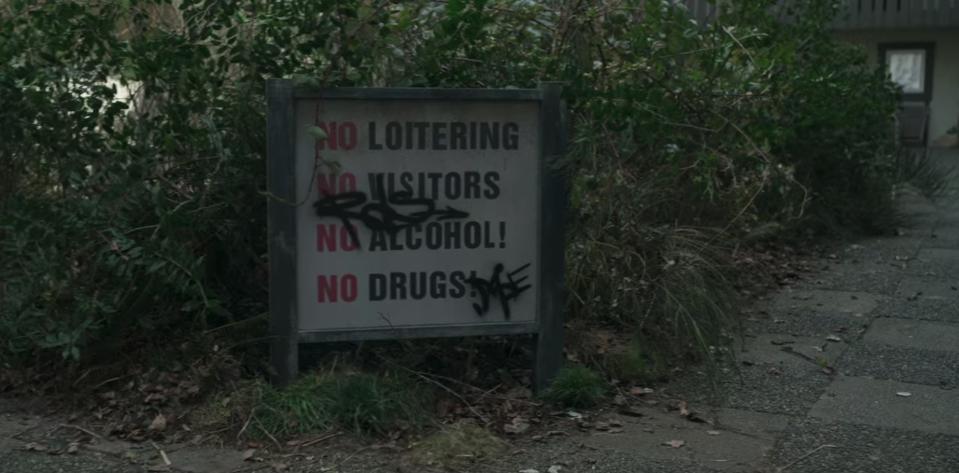
The homeless shelter that Land and her daughter lived in for a short period of time came with a four-page list of rules, including “no visitors.” Though we do get a quick flash of a sign of rules for transitional housing, these kinds of regulations for being low income are not covered in Maid. Other rules for being homeless included random urine analysis tests, random unit inspections, and a 10 p.m. curfew. These types of environments are also subjected to regular visits from police who are looking for any excuse to bust someone down on their luck for something, anything.
On the flip side, Land learns that a lot of people in positions of power will purposely not follow rules to discriminate against the poor. For example, to qualify for Section 8, a house or apartment must meet several safety standards; if not, it becomes unavailable to a family with a voucher to rent. This allows landlords to neglect the safety standards in order to keep “Section 8 people” away.
11.Government programs encourage poor people to have poor nutrition.
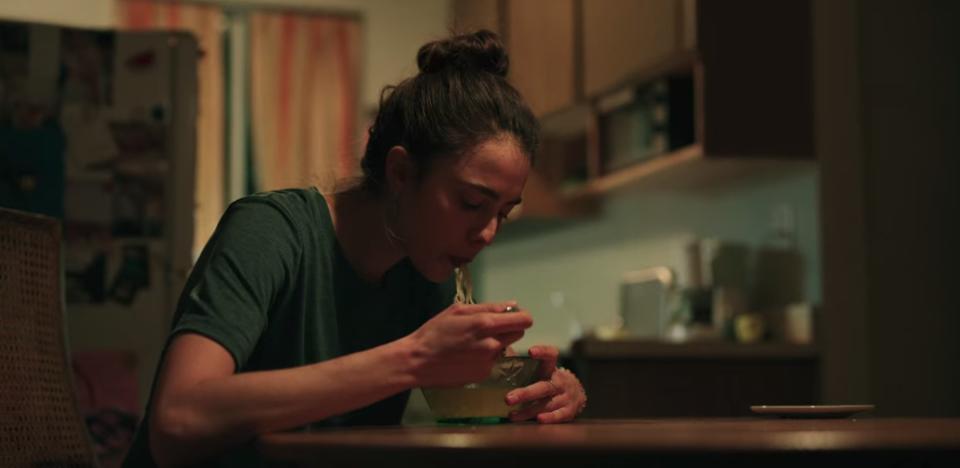
During the series, we don't see Alex at the grocery store often. For the working poor, knowing where your next meal is coming from is a daily struggle. Stocking up on junk and fast food is usually the quickest and cheapest option available for those in poverty, but it is common knowledge that healthier diets cost significantly more than unhealthy diets.
One Harvard study concluded that unhealthy diets may cost less because food policies have focused on the production of “inexpensive, high volume” commodities. This is revealed in the Maid book, when Land loses the ability to buy organic milk for her daughter with WIC, the program opting to replace organic options with inexpensive alternatives, like skim milk. The program then added $10 for produce, except potatoes, because “people tend to fry them or add lots of butter.” If she went over $10 in fresh produce, the check would be void.
12.She and her daughter’s health were in constant decline, but Land had no health insurance.

Eventually, Land made too much money (let that sink in) to qualify for Medicaid, leaving only her daughter insured by the program. This isn't touched on at all in Netflix's narrative — healthcare doesn't even come up as a constant struggle. The majority of Americans without health insurance or access to healthcare are poor. Her daughter was constantly in and out of doctors’ offices for chronic ear infections and upper-respiratory infections, but she personally couldn’t afford to see a doctor for her chronic pain, sinus infections, and constant coughs. Living with illness or pain is a regular part of life when you don’t have private insurance in America, which is a problem faced mostly by people of low income.
13.Land was never in a domestic violence shelter, but she did volunteer with a nonprofit organization.
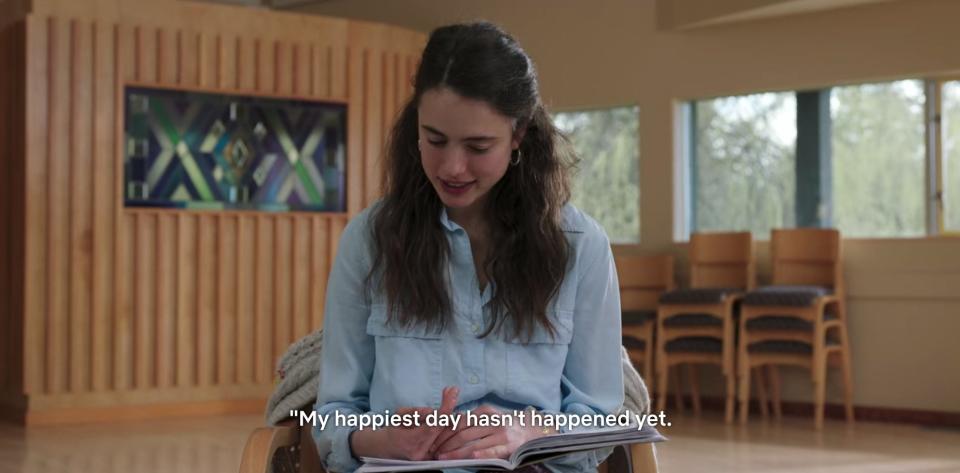
In Maid, Alex spends quite a bit of time in a domestic violence shelter, where she and her daughter can have a temporary safe place to live, make some friends and allies, and obtain some free meals and clothing. This never happened for our author, who only ever lived in a homeless shelter and transitional housing. But after all that she had been through, Land desperately wanted to give back.
She started to volunteer as a receptionist at Domestic Violence and Sexual Assault Services and also became a client. This is where she learned about the Women’s Independence Scholarship Program, a scholarship specifically for survivors of domestic violence, which she received $3,000 through. This helped her and her daughter save up, get their car fixed, and move to Missoula, Montana for good.
14.Some of her income and possessions actually came from community crowdfunding.
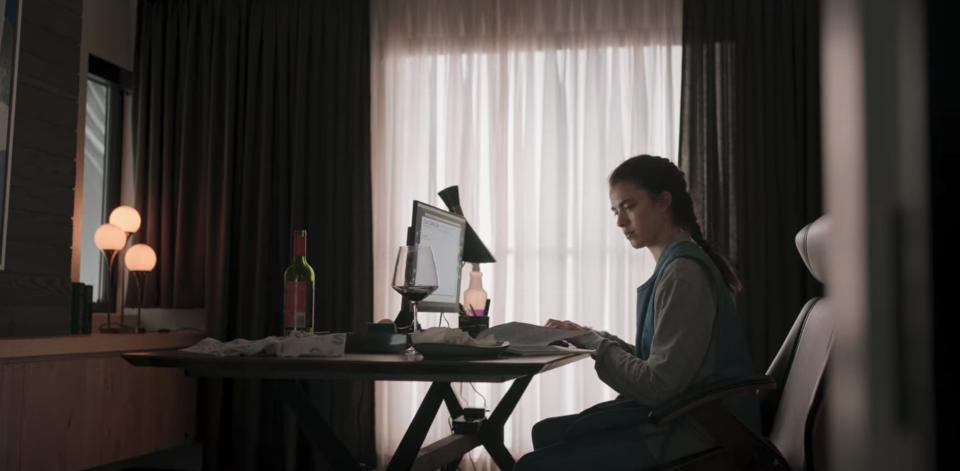
Our protagonist onscreen in Maid seems to be a lone wolf, with virtually no friends and barely any family. In reality, Land posted very openly about her struggles on Facebook and started a blog, which inspired her community to spring into action. She received messages full of encouragement and love; some even sent her money. She made a wish list through Walmart that she shared on social media, and boxes started showing up filled with pots, pans, clothes, and silverware. During a severe winter storm, one neighbor even reached out on Facebook to offer her a sled for her daughter to play with. There is strength in community.
15.Even though Land had people cheering her on, poverty is isolating.
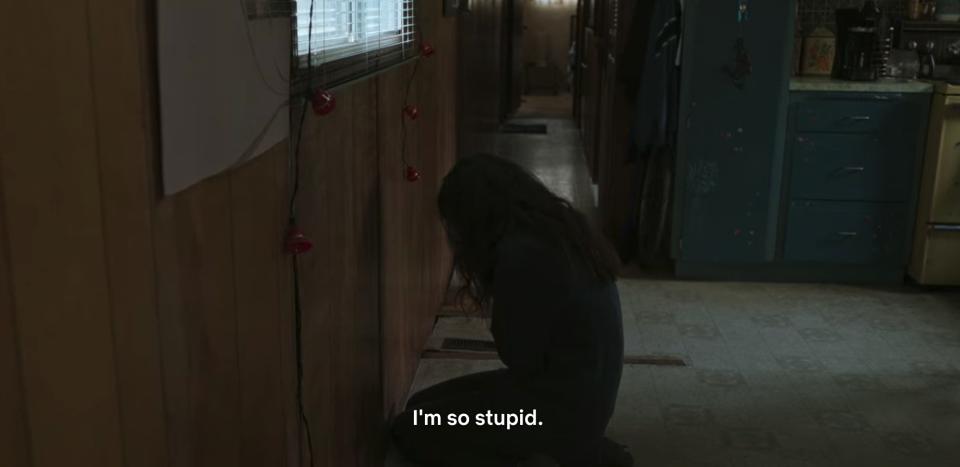
As previously stated, Alex seems to operate in isolation, but we never get to see how alone she really is. She seems to live in a constant state of hustle-and-bustle, meeting people through work and assistance programs. Most of the author’s relationships had faded because of the embarrassment and judgment of her daily life. She felt like her friends did not want to hear about the struggles of her life over and over, and she isolated herself from her closest companions. It’s also nearly impossible to socialize when you’re a single mother living in poverty — who has the time to go on a date between the rental assistance seminars, work, dinner, and then bath time with her daughter? While we see Alex in the show constantly putting on a brave face to her many clients and acquaintances, we don't see much of the reality, which is a lot of time completely alone.
16.Social media contributed to rising stigmas about poverty and government assistance.

We’ve all heard it before: “Social media is the downfall of society.” Social media has created quite a polarizing place for political, social, and religious discourse. It has also changed how we act in real life. You don't have the chance to see this in the miniseries, but it is touched on in the Maid novel. The author says that memes began to circulate in 2008 comparing people on food stamps to wild animals.
Memes became extremely popular during this time (it’s weird to think of the internet without memes, but there was a “before time”), and a lot of people used social media (specifically Facebook) to spread hateful, racist, and classist rhetoric and disinformation.
17.As a single mother enrolled in school, Land was able to find creative ways to supplement her income.
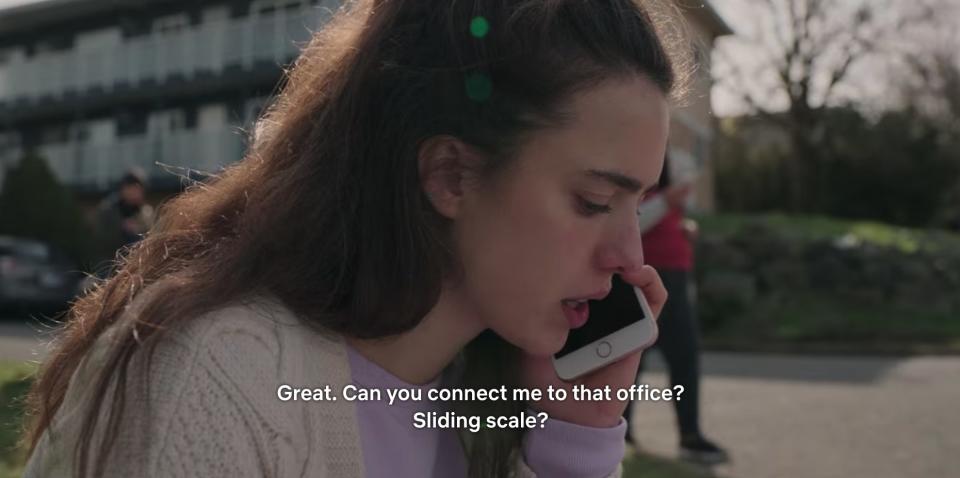
Even though her advisor at the local community college told her, “What you’re trying to do here is pretty much impossible,” referring to the course load along with being a single mother who worked full time, she found that being a student helped her case. Claiming her daughter as a dependent on her taxes helped her get a government grant to pay for school. She was also able to take out the maximum amount of student loans to make ends meet, which gave her more of a cushion, and eventually, helped her move to Missoula to attend the University of Montana. Even though this kind of information could be crucial for viewers in similar circumstances, we don't really get to see Alex fight for different benefits regarding her education onscreen.
Stories like Stephanie Land’s (and subsequently, Alex’s) are far too common, yet rarely get heard. As we continue to navigate this post-normal (an in-between period where old orthodoxies are dying, new ones have yet to be born, and very few things seem to make sense) world, I hope we see more representation of the working poor and their lived experiences on our screens – not for entertainment, but to teach us solidarity.
Were there any moments from the Maid book that you felt the series didn't highlight? Let us know below!

